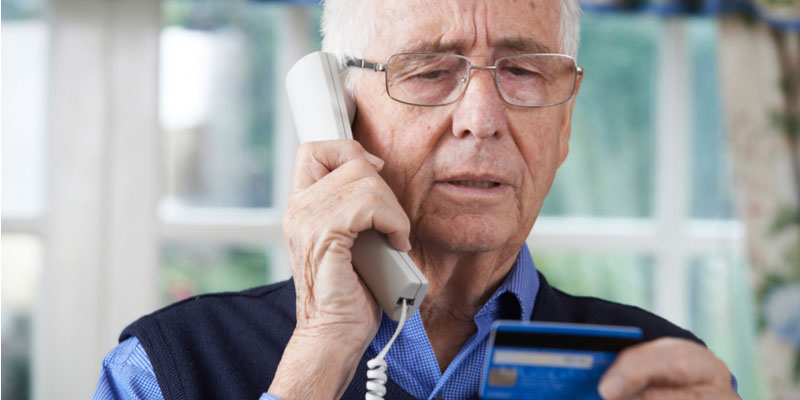Warning seniors about potential financial scams is crucial to helping protect your loved one against fraud and scams. Seniors in Florida are largely targeted by scammers because they are believed to have large amounts of money sitting in their accounts. Although, low-income seniors are targeted every single day.
Sadly, it’s not just strangers you have to look out for. More than 90% of elder abuse, which includes financial fraud, is committed by family members—most commonly children, followed by grandchildren.
To help prevent your loved one from falling prey, talk openly and often about financial scams aimed at seniors. Along with ways they can protect themselves. Keep reminders by the phone and door, and routinely check over bank statements to make sure spending reports appear normal.
Senior Financial Scams To Look Out For
1. Funeral Scams
The FBI warns against two types of similar scams in which scammers find their victims at funerals and cemeteries. Scammers take advantage of this emotional moment to try and extort money from seniors. After offering comfort and support, they may inform their victim that the deceased had a lot of debts that they are now responsible to pay. They will then play bill collector for these fake debts.
Another common funeral scam is where funeral directors try and take advantage of mourning seniors by tacking unnecessary charges to their bill. For instance, it’s been reported that some funeral directors insist a casket is necessary even if there are plans to cremate the body.
2. Medicare-Related Scams
Since all senior citizens get Medicare, it’s a favorite go-to for financial scammers. They don’t even need to know what health group a senior belongs to; they can simply pose as the state Medicare office to extract important information from seniors.
3. Door-to-Door Scams
Oftentimes, scammers go to door-to-door trying to sell services like carpet cleaning. Warn your loved one against opening the door for anyone they don’t know. You might want to consider installing a separate locked screen door. This allows your loved one to open the door and converse without risking their vulnerability. Warn seniors against letting door-to-door salesmen or other strangers inside their home—no matter how friendly, or free, their services are.
4. Wire-Money Scams
Warn seniors against wiring money, especially to another country or to someone they don’t know. Many wire-transfer scams involve someone posing as someone else asking for help via a wire-transfer.
5. Mortgage Related Scams
A recent scam busted in San Diego involved scammers sending personalized letters forged to look like they came from the County Assessor’s Office to homeowners. The letter appeared professional, but upon closer inspection only offered generalized information. Many seniors still fell for the scam and paid to have their home value reassessed in hopes of reducing tax burdens. A similar same scam could unfold in Florida, or anywhere else.
Another scam involves a variety of potential culprits who suggest one takes out a reverse mortgage on their home. This opens a line of credit to the homeowner, but essentially signs the home over to the bank. Be cautious of anyone who will benefit from a senior acquiring equity. For instance, a home repair company that goes door-to-door suggesting seniors get a reverse mortgage to afford upgrades and renovations.
6. The Grandparent Scam
It’s no joke… there’s such thing as a Grandparent Scam. The disgusting tactic is employed by desperate people willing to prey on kindhearted grandparents. The scam typically involves someone calling a known-grandma or grandpa and saying something like: “Do you know who this is? It’s your favorite grandchild!”
You know what happens next, grandma/pa starts guessing names, allowing the scammer to say, “Yes, that’s me!” The scammer then proceeds to explain a problem going on that they can’t tell their parents about. Ultimately, they want their victim to send money via wire transfer.
Protect Your Loved One from Senior Financial Scams
Anyone can fall prey to a financial scam, but seniors are at a greater risk because scammers actively target them. That’s why it’s so important to talk about potential scams and how to protect oneself.
Keep pushing the matter, even if your mom/dad/grandma/grandpa rolls their eyes when you discuss financial scams and says something like, “I wasn’t born yesterday.” You can’t completely remove the risk, but you can help reduce it.

